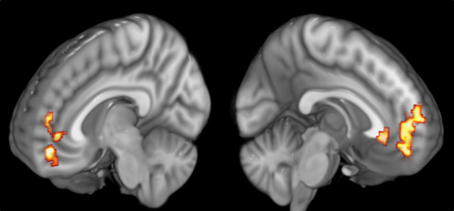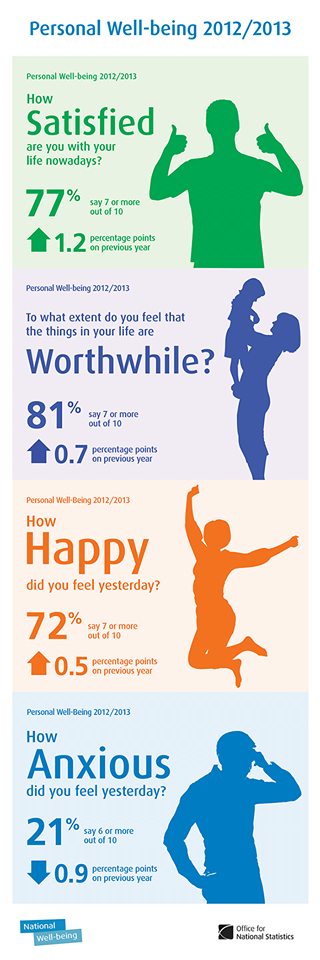|
Gratitude Journal
A gratitude journal is a diary of things for which someone is grateful. Keeping a gratitude journal is a popular practice in the field of positive psychology. It is also referred to as “counting one's blessings” or “three good things”. Empirical findings on the benefits of gratitude journals have shown significant impact on psychological and physical well-being. Early research revealed individuals who regularly documented things they were grateful for, experienced heightened optimism, increased exercise time, fewer physical symptoms, and greater progress towards goals. Such benefits were observed in adults with neuromuscular diseases, noting improved optimism, sleep quality, and connection to others. Studies extended to childhood, where gratitude practices enhanced life satisfaction and school satisfaction among early adolescents. Further research highlighted gratitude's neural correlates, particularly in the medial prefrontal cortex, linking directly to participants' g ... [...More Info...] [...Related Items...] OR: [Wikipedia] [Google] [Baidu] |
Affect (psychology)
Affect, in psychology, is the underlying experience of feeling, emotion, attachment theory, attachment, or Mood (psychology), mood. It encompasses a wide range of emotional states and can be positive (e.g., happiness, joy, excitement) or negative (e.g., sadness, anger, fear, disgust). Affect is a fundamental aspect of human experience and plays a central role in many psychological theories and studies. It can be understood as a combination of three components: emotion, mood (enduring, less intense emotional states that are not necessarily tied to a specific event), and affectivity (an individual's overall disposition or temperament, which can be characterized as having a generally positive or negative affect). In psychology, the term ''affect'' is often used interchangeably with several related terms and concepts, though each term may have slightly different nuances. These terms encompass: emotion, feeling, mood, emotional state, sentiment, affective state, emotional response, a ... [...More Info...] [...Related Items...] OR: [Wikipedia] [Google] [Baidu] |
Subjective Well-being
Subjective well-being (SWB) is a concept of well-being (happiness) that focus on evaluations from the perspective of the people who's lives are being evaluated rather than from some objective viewpoint. SWB measures often rely on self-reports, but that does not make them SWB measures. Objective measures of wellbeing are also sometimes measured with self-reports and SWB can also be measured with informant ratings. Ed Diener defined SWB in terms of three indicators of subjective well-being: frequent positive affect, infrequent negative affect, and cognitive evaluations such as life satisfaction." SWB includes two different subjective measures of well-being that are based on different definitions of happiness. Experiences of positive affect (mood, emotions), and experiences of negative affect (mood, emotions) can be used to create a measure of the amount of positive and negative affect in people's lives. These hedonic balance scores measure subjective wellbeing from a hedonistic ... [...More Info...] [...Related Items...] OR: [Wikipedia] [Google] [Baidu] |
Page Layout
In graphic design, page layout is the arrangement of visual elements on a page. It generally involves organizational principles of composition to achieve specific communication objectives. The high-level page layout involves deciding on the overall arrangement of text and images, and possibly on the size or shape of the medium. It requires intelligence, sentience, and creativity, and is informed by culture, psychology, and what the document authors and editors wish to communicate and emphasize. Low-level pagination and typesetting are more mechanical processes. Given certain parameters such as boundaries of text areas, the typeface, and font size, justification preference can be done in a straightforward way. Until desktop publishing became dominant, these processes were still done by people, but in modern publishing, they are almost always automated. The result might be published as-is (as for a residential phone book interior) or might be tweaked by a graphic designer (as ... [...More Info...] [...Related Items...] OR: [Wikipedia] [Google] [Baidu] |
David Schkade
David (; , "beloved one") was a king of ancient Israel and Judah and the third king of the United Monarchy, according to the Hebrew Bible and Old Testament. The Tel Dan stele, an Aramaic-inscribed stone erected by a king of Aram-Damascus in the late 9th/early 8th centuries BCE to commemorate a victory over two enemy kings, contains the phrase (), which is translated as "House of David" by most scholars. The Mesha Stele, erected by King Mesha of Moab in the 9th century BCE, may also refer to the "House of David", although this is disputed. According to Jewish works such as the ''Seder Olam Rabbah'', ''Seder Olam Zutta'', and ''Sefer ha-Qabbalah'' (all written over a thousand years later), David ascended the throne as the king of Judah in 885 BCE. Apart from this, all that is known of David comes from biblical literature, the historicity of which has been extensively challenged,Writing and Rewriting the Story of Solomon in Ancient Israel; by Isaac Kalimi; page 32; Cambr ... [...More Info...] [...Related Items...] OR: [Wikipedia] [Google] [Baidu] |
Sonja Lyubomirsky
Sonja Lyubomirsky (, born December 14, 1966) is a Russian-born American professor in the Department of Psychology at the University of California, Riverside and author of ''The How of Happiness: A Scientific Approach to Getting the Life You Want''. Education Lyubomirsky received her B.A. from Harvard University and her Ph.D. in Social psychology, Social/Personality psychology, Personality Psychology from Stanford University. Awards Lyubomirsky has received a John Templeton Foundation grant, a Science of Generosity grant, a Templeton Positive Psychology Prize, and a million-dollar grant (with Ken Sheldon) from the National Institute of Mental Health. In 2021, she received an honorary doctorate from the University of Basel. In 2023, Lyubomirsky was elected a Fellow of the American Association for the Advancement of Science. ''The How of Happiness'' ''The How of Happiness'' was published in 2008 by Penguin Press. The book has been translated into 22 languages. The premise ... [...More Info...] [...Related Items...] OR: [Wikipedia] [Google] [Baidu] |
Kindness
Kindness is a type of behavior marked by acts of generosity, consideration, or concern for others, without expecting praise or reward in return. It is a subject of interest in philosophy, religion, and psychology. It can be directed towards one's self or other people, and is present across multiple different species and cultures. History In English, the word ''kindness'' dates from approximately 1300, though the word's sense evolved to its current meanings in the late 1300s. In society Human Mate choice#Mate choice in humans, mate choice studies suggest that both men and women value kindness in their prospective mates, along with Human intelligence, intelligence, physical appearance, physical appearance, attractiveness, and Ageing, age. In psychology Studies at Yale University used games with babies to conclude that kindness is inherent to human beings. There are similar studies about the root of empathy in infancy – with motor Mirroring (psychology), mirroring developing ... [...More Info...] [...Related Items...] OR: [Wikipedia] [Google] [Baidu] |
Happiness
Happiness is a complex and multifaceted emotion that encompasses a range of positive feelings, from contentment to intense joy. It is often associated with positive life experiences, such as achieving goals, spending time with loved ones, or engaging in enjoyable activities. However, happiness can also arise spontaneously, without any apparent external cause. Happiness is closely linked to well-being and overall life satisfaction. Studies have shown that individuals who experience higher levels of happiness tend to have better physical and mental health, stronger social relationships, and greater resilience in the face of adversity. The pursuit of happiness has been a central theme in philosophy and psychology for centuries. While there is no single, universally accepted definition of happiness, it is generally understood to be a state of mind characterized by positive emotions, a sense of purpose, and a feeling of fulfillment. Definitions "Happiness" is subject to deb ... [...More Info...] [...Related Items...] OR: [Wikipedia] [Google] [Baidu] |
Mediation (statistics)
In statistics, a mediation model seeks to identify and explain the mechanism or process that underlies an observed relationship between an independent variable and a dependent variable via the inclusion of a third hypothetical variable, known as a mediator variable (also a mediating variable, intermediary variable, or intervening variable). Rather than a direct causal relationship between the independent variable and the dependent variable, a mediation model proposes that the independent variable influences the mediator variable, which in turn influences the dependent variable. Thus, the mediator variable serves to clarify the nature of the causal relationship between the independent and dependent variables. Mediation analyses are employed to understand a known relationship by exploring the underlying mechanism or process by which one variable influences another variable through a mediator variable.Cohen, J.; Cohen, P.; West, S. G.; Leona S. Aiken, Aiken, L. S. (2003) ''Applied Mul ... [...More Info...] [...Related Items...] OR: [Wikipedia] [Google] [Baidu] |
Neural Correlates Of Gratitude
In biology, the nervous system is the complex system, highly complex part of an animal that coordinates its behavior, actions and sense, sensory information by transmitting action potential, signals to and from different parts of its body. The nervous system detects environmental changes that impact the body, then works in tandem with the endocrine system to respond to such events. Nervous tissue first arose in Ediacara biota, wormlike organisms about 550 to 600 million years ago. In Vertebrate, vertebrates, it consists of two main parts, the central nervous system (CNS) and the peripheral nervous system (PNS). The CNS consists of the brain and spinal cord. The PNS consists mainly of nerves, which are enclosed bundles of the long fibers, or axons, that connect the CNS to every other part of the body. Nerves that transmit signals from the brain are called motor nerves (efferent), while those nerves that transmit information from the body to the CNS are called sensory nerves (aff ... [...More Info...] [...Related Items...] OR: [Wikipedia] [Google] [Baidu] |
Optimism
Optimism is the Attitude (psychology), attitude or mindset of expecting events to lead to particularly positive, favorable, desirable, and hopeful outcomes. A common idiom used to illustrate optimism versus pessimism is Is the glass half empty or half full?, a glass filled with water to the halfway point: an optimist is said to see the glass as half full, while a pessimist sees the glass as half empty. In ordinary English, optimism may be synonymous with ''idealism''—often, unrealistic or foolish optimism in particular. The term derives from the Latin , meaning "best". To be optimistic, in the typical sense of the word, is to expect the best possible outcome from any given situation. This is usually referred to in psychology as dispositional optimism. It reflects a belief that future conditions will work out for the best. As a trait theory, trait, it fosters Psychological resilience, resilience in the face of Psychological stress, stress. Theories of optimism include dis ... [...More Info...] [...Related Items...] OR: [Wikipedia] [Google] [Baidu] |
Robert A
The name Robert is an ancient Germanic given name, from Proto-Germanic "fame" and "bright" (''Hrōþiberhtaz''). Compare Old Dutch ''Robrecht'' and Old High German ''Hrodebert'' (a compound of ''Hrōþ, Hruod'' () "fame, glory, honour, praise, renown, godlike" and ''berht'' "bright, light, shining"). It is the second most frequently used given name of ancient Germanic origin.Reaney & Wilson, 1997. ''Dictionary of English Surnames''. Oxford University Press. It is also in use Robert (surname), as a surname. Another commonly used form of the name is Rupert (name), Rupert. After becoming widely used in Continental Europe, the name entered England in its Old French form ''Robert'', where an Old English cognate form (''Hrēodbēorht'', ''Hrodberht'', ''Hrēodbēorð'', ''Hrœdbœrð'', ''Hrœdberð'', ''Hrōðberχtŕ'') had existed before the Norman Conquest. The feminine version is Roberta (given name), Roberta. The Italian, Portuguese, and Spanish form is Roberto (given name), ... [...More Info...] [...Related Items...] OR: [Wikipedia] [Google] [Baidu] |





